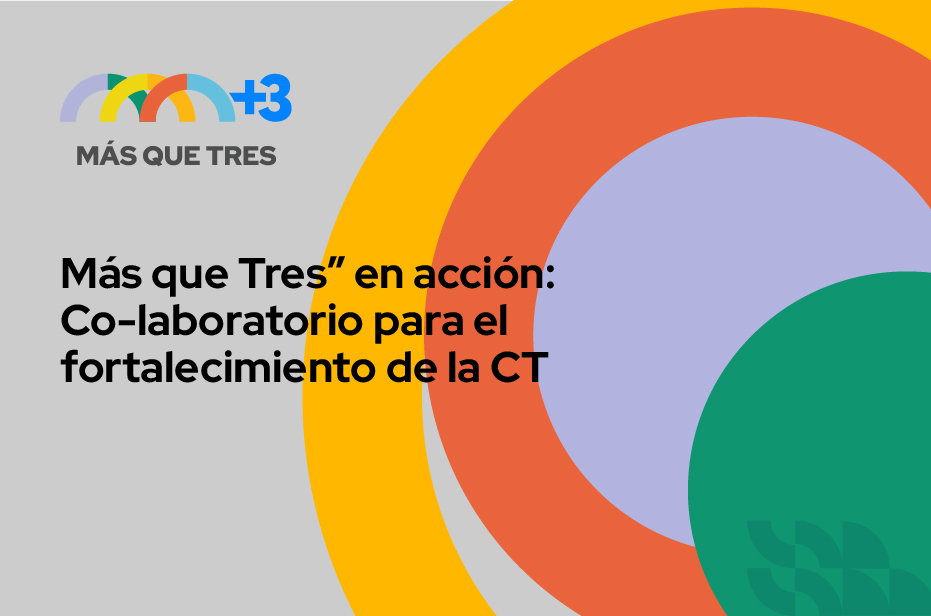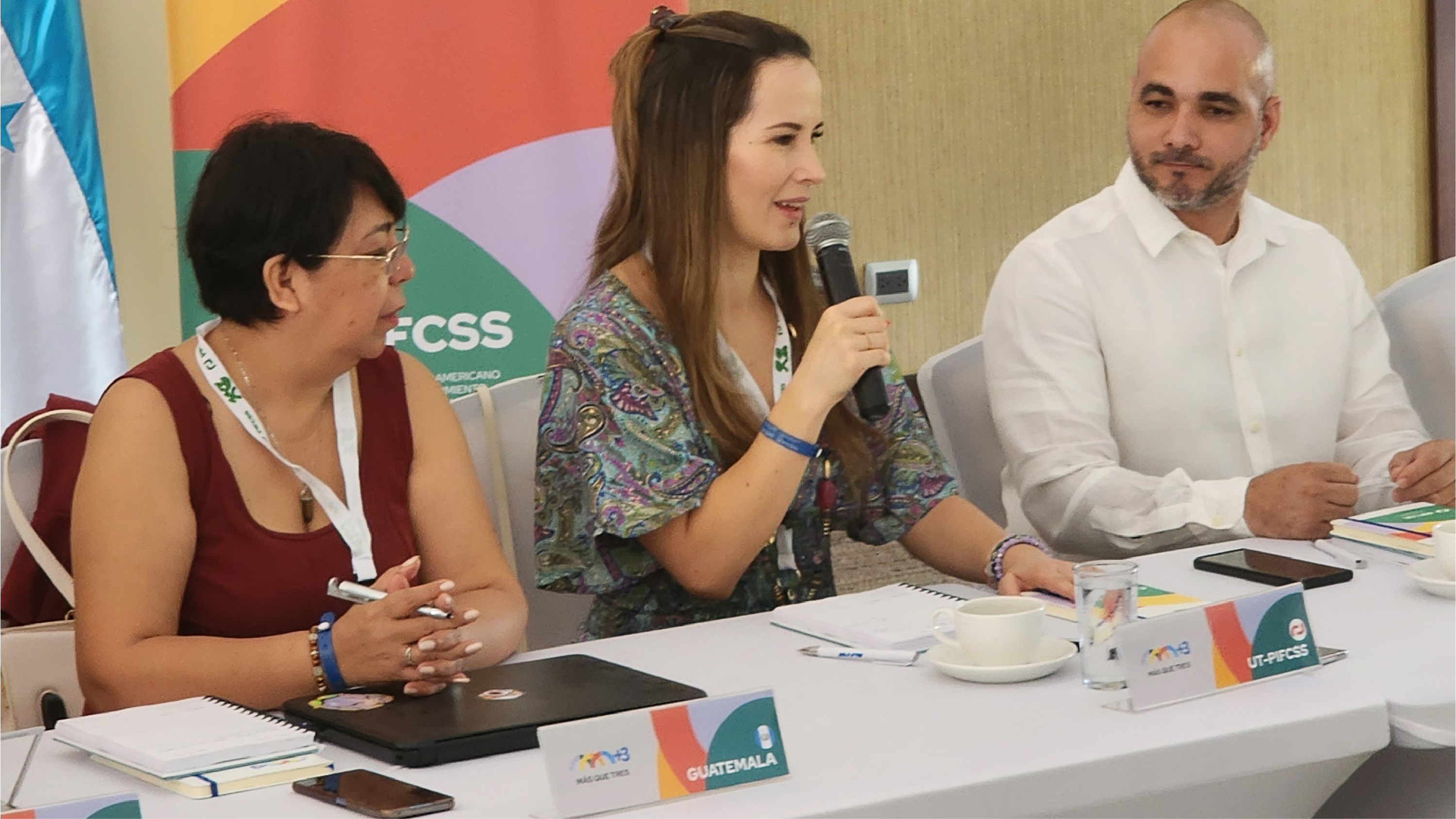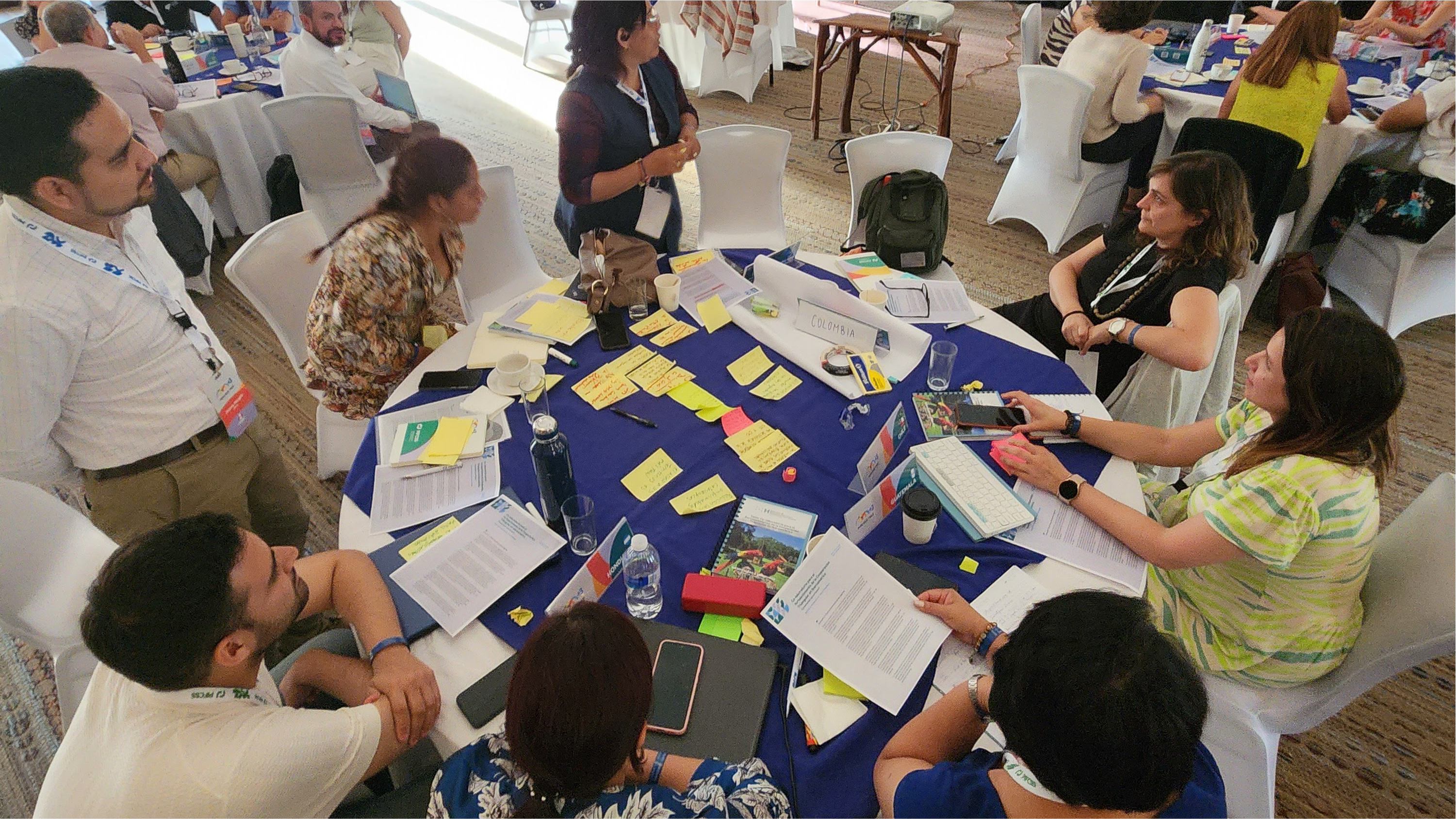From June 24th to 26th, 2024, Tela, Honduras, Hosted the First “Co-laboratory for Strengthening Triangular Cooperation in Ibero-America” Launching MÁS QUE TRES, an Open, Flexible, and Collaborative Space for the 21 PIFCSS Member Countries Dedicated to Exploring Solutions for Regional Challenges in Managing and Positioning Triangular Cooperation (TrC) in Ibero-America.
The Co-laboratory in Tela was designed as a proof of concept for MÁS QUE TRES and the collaborative lab. In this way, TrC practitioners in the region experimented with different formats to unpack specific challenges and capitalize on the knowledge and diverse practices of the region, with a focus on agile outcomes, whether they be work tools, new lines of action, or future collaborations among members, with other partners, or international processes to strengthen the practice of TrC.
The design of the meeting was guided by prioritizing the situations that the countries in the region needed to resolve at that moment. This input was discussed by the Reference Group for Triangular Cooperation, composed of Colombia, Costa Rica, Ecuador, Peru, Portugal, and the Dominican Republic, with support from SEGIB and the Technical Unit, which worked intensively to guide the proof of concept of this new working approach and present it for discussion among the 21 countries.
Connecting with Partners, Processes, and Collective Knowledge for Better TrC
The meeting’s agenda showcased the range of possibilities that MÁS QUE TRES has at its disposal to address the needs of the countries in terms of TrC. The common thread of the meeting was the search for connections to demonstrate the power of collaboration and the sum of resources and knowledge, the basic characteristic of TrC. The meeting included:
- A reflection guided by SEGIB on the challenges and opportunities for TrC in the global context, based on trends and findings from the evolution of TrC revealed in the various editions of the Ibero-American Reports on South-South and Triangular Cooperation.
- A trial of prospective methodologies to think about the technical needs that different future scenarios might demand from TrC.
- Collective discussion on the design and implementation of recent mechanisms for TrC financing with regional actors: the funds that Brazil, Colombia, Chile, and Costa Rica have with the European Union, Spain’s new TrC program, and the joint call between Portugal and SEGIB for Ibero-America and the Portuguese-speaking African Countries.
- The central Co-laboratory exercise, analyzing and identifying solutions for two priority situations for the countries: i) How to develop effective proposals for TrC calls, ii) Strategies for integrating new actors into TrC, such as extraregional organizations or non-governmental actors.
- A conversation between practice and academia to enrich the design of the environmental TrC study, driven by SEGIB and the European Union.
- A multi-actor and multi-level space to listen to voices from the ground and learn from experiences in coordinating triangular initiatives. This moment allows countries to approach projects in the territory, taking advantage of PIFCSS in-person meetings held in different countries outside capitals.
- Three opportunities for connection with partners close to the region: reflection on the practices and experiences of countries under the German Regional TrC Fund with Latin America and Caribbean partners, contributing to the 2025-2029 planning process; a conversation with Portugal and the OECD on designing the upcoming 8th International Meeting on Triangular Cooperation in Lisbon; and the proposal for collaboration between MÁS QUE TRES and Japan based on the renewed TrC strategy of the Japanese agency.
Results and Next Steps
At the end of the meeting, the countries reflected on the format and content to adjust the design of MÁS QUE TRES as a collaboration and innovation space that marks a new chapter in strengthening TrC in Ibero-America. The countries agreed on the following lines of action for the space: i) deepening knowledge of TrC funds and boosting collaboration to make use of them; ii) contributing to identifying and matching interests, needs, and capacities in the region; iii) continuing the exchange with SEGIB and other actors on knowledge/innovation products; iv) designing specific collaboration moments with bilateral and multilateral partners, with JICA and OECD being the closest.
Three agile results from Tela are already published on the MÁS QUE TRES website:
- Characteristics of recent mechanisms supporting TrC projects and common lessons learned
- Inventory of potential questions to consider when designing mechanisms to support TrC projects
- Global ecosystem of dialogue and capacity-building for TrC


